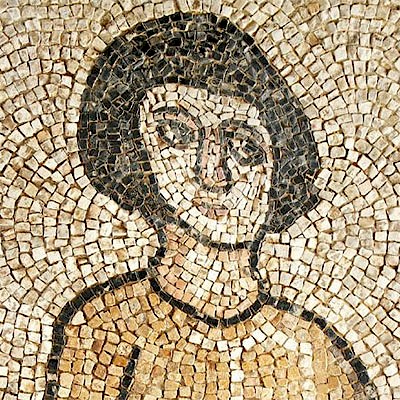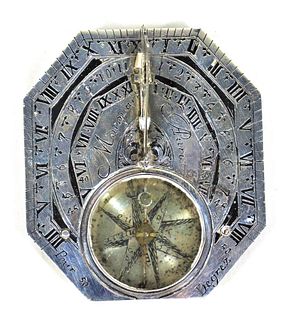Hellenistic Greek Terracotta Theater Maskette
Lot 29
About Seller
Artemis Fine Arts
686 S Taylor Ave, Ste 106
Louisville, CO 80027
United States
Selling antiquities, ancient and ethnographic art online since 1993, Artemis Gallery specializes in Classical Antiquities (Egyptian, Greek, Roman, Near Eastern), Asian, Pre-Columbian, African / Tribal / Oceanographic art. Our extensive inventory includes pottery, stone, metal, wood, glass and textil...Read more
Estimate:
$1,000 - $1,500
Absentee vs Live bid
Two ways to bid:
- Leave a max absentee bid and the platform will bid on your behalf up to your maximum bid during the live auction.
- Bid live during the auction and your bids will be submitted real-time to the auctioneer.
Bid Increments
| Price | Bid Increment |
|---|---|
| $0 | $25 |
| $300 | $50 |
| $1,000 | $100 |
| $2,000 | $250 |
| $5,000 | $500 |
| $10,000 | $1,000 |
| $20,000 | $2,500 |
| $50,000 | $5,000 |
| $100,000 | $10,000 |
| $200,000 | $20,000 |
About Auction
By Artemis Fine Arts
Aug 2, 2018
Set Reminder
2018-08-02 10:00:00
2018-08-02 10:00:00
America/New_York
Bidsquare
Bidsquare : Antiquities | Egypt, Greece, Italy, Asia
https://www.bidsquare.com/auctions/artemis-gallery/antiquities-egypt-greece-italy-asia-3352
Featuring two incredible collections - one in storage for more than 20 years! Artemis Fine Arts info@artemisgallery.com
Featuring two incredible collections - one in storage for more than 20 years! Artemis Fine Arts info@artemisgallery.com
- Lot Description
Greece, Hellenistic, ca. 3rd century BCE. A molded terracotta theater maskette depicting a male face with an expressive countenance. This includes openwork eyes with thick lids and ample brows above a pronounced nose, a mustache, and a full beard. The surface was once covered in creamy beige/white slip and much of the pigment remains, particularly in the striated lines of the beard. Size: 3.75" W x 4.75" H (9.5 cm x 12.1 cm); 5.4" H (13.7 cm) on included custom stand.
Masks played an important role in Classical theatre. An actor's entire head and hair would be covered by a large mask of simple design, made from linen or cork, with holes for the mouth and eyes. These masks allowed audience members seated in all areas of the theatre to understand what was happening, while also amplifying the actor's voice. The Pompeiian mosaic from the House of the Tragic Poet (now in the Naples National Archaeological Museum) shows several examples of these masks including one actor wearing an example pushed up on his head. Mask motifs on decorative art speak to the power and popularity of Roman theatre.
Provenance: private New York, USA collection; ex-private collection of Professor Dr. Gunther Marschall, Hamburg, Germany, acquired between 1967 and 1975
All items legal to buy/sell under U.S. Statute covering cultural patrimony Code 2600, CHAPTER 14, and are guaranteed to be as described or your money back.
A Certificate of Authenticity will accompany all winning bids.
We ship worldwide and handle all shipping in-house for your convenience.
#133037Repaired from about three pieces with losses to peripheries. Repairs are well done and unobtrusive. Normal surface wear with slip loss, though some remains. Areas of mineral deposits.Condition
- Shipping Info
-
All shipping is handled in-house for your convenience. Your invoice from Artemis Gallery will include shipping calculation instructions. If in doubt, please inquire BEFORE bidding for estimated shipping costs for individual items.
-
- Buyer's Premium



 EUR
EUR CAD
CAD AUD
AUD GBP
GBP MXN
MXN HKD
HKD CNY
CNY MYR
MYR SEK
SEK SGD
SGD CHF
CHF THB
THB















